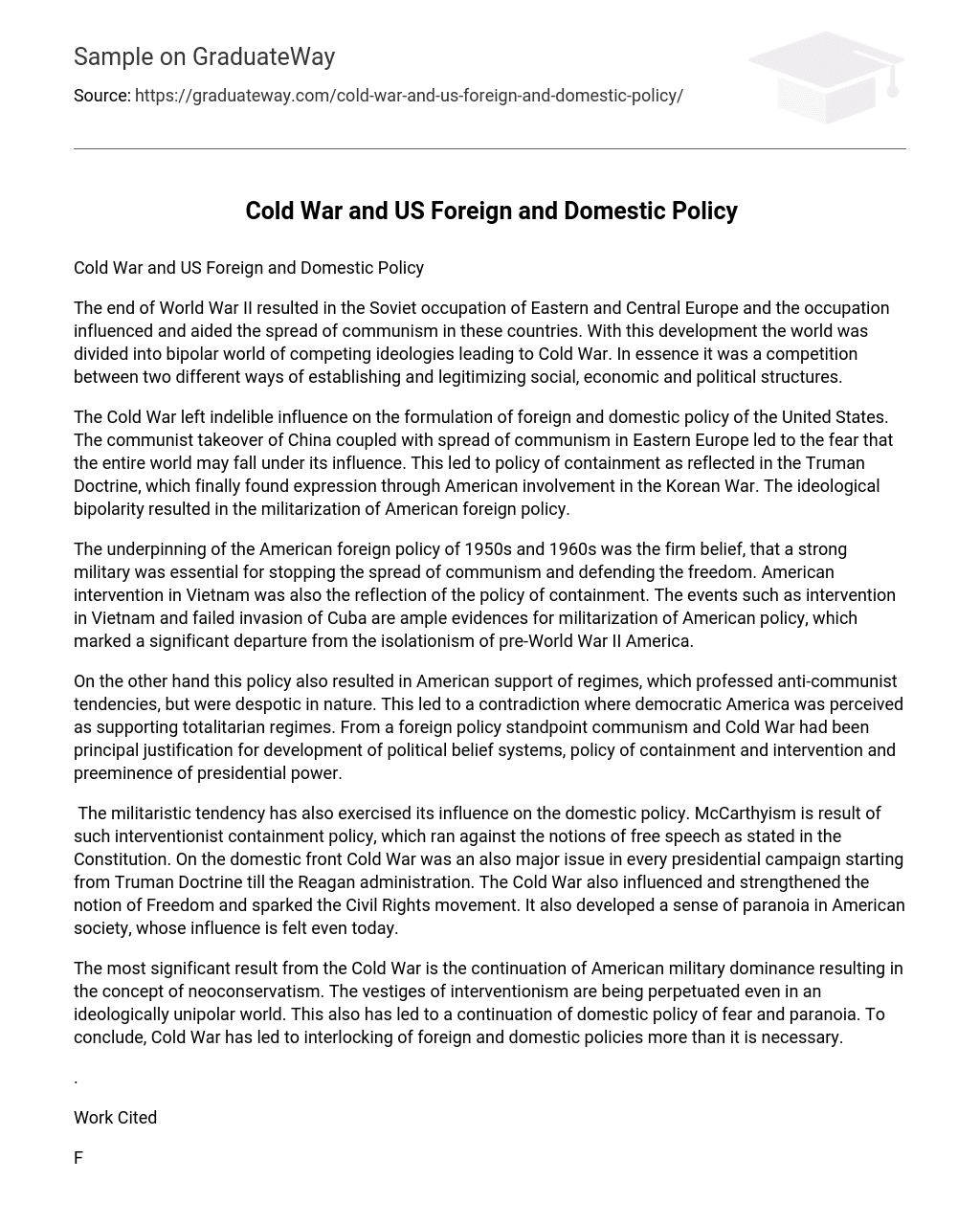The end of World War II resulted in the Soviet occupation of Eastern and Central Europe and the occupation influenced and aided the spread of communism in these countries. With this development the world was divided into bipolar world of competing ideologies leading to Cold War. In essence it was a competition between two different ways of establishing and legitimizing social, economic and political structures.
The Cold War left indelible influence on the formulation of foreign and domestic policy of the United States. The communist takeover of China coupled with spread of communism in Eastern Europe led to the fear that the entire world may fall under its influence. This led to policy of containment as reflected in the Truman Doctrine, which finally found expression through American involvement in the Korean War. The ideological bipolarity resulted in the militarization of American foreign policy.
The underpinning of the American foreign policy of 1950s and 1960s was the firm belief, that a strong military was essential for stopping the spread of communism and defending the freedom. American intervention in Vietnam was also the reflection of the policy of containment. The events such as intervention in Vietnam and failed invasion of Cuba are ample evidences for militarization of American policy, which marked a significant departure from the isolationism of pre-World War II America.
On the other hand this policy also resulted in American support of regimes, which professed anti-communist tendencies, but were despotic in nature. This led to a contradiction where democratic America was perceived as supporting totalitarian regimes. From a foreign policy standpoint communism and Cold War had been principal justification for development of political belief systems, policy of containment and intervention and preeminence of presidential power.
The militaristic tendency has also exercised its influence on the domestic policy. McCarthyism is result of such interventionist containment policy, which ran against the notions of free speech as stated in the Constitution. On the domestic front Cold War was an also major issue in every presidential campaign starting from Truman Doctrine till the Reagan administration. The Cold War also influenced and strengthened the notion of Freedom and sparked the Civil Rights movement. It also developed a sense of paranoia in American society, whose influence is felt even today.
The most significant result from the Cold War is the continuation of American military dominance resulting in the concept of neoconservatism. The vestiges of interventionism are being perpetuated even in an ideologically unipolar world. This also has led to a continuation of domestic policy of fear and paranoia. To conclude, Cold War has led to interlocking of foreign and domestic policies more than it is necessary.
.
Work Cited
Friedman, L. Thomas. The World is Flat, England: Penguin Books Ltd., 2005. 48-172





